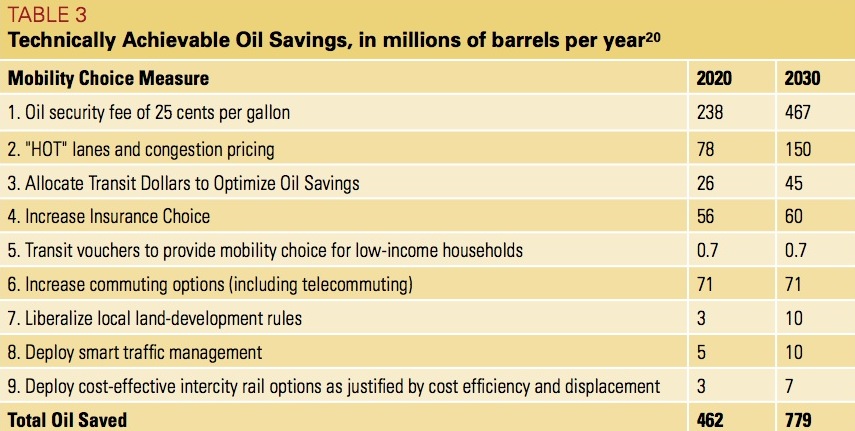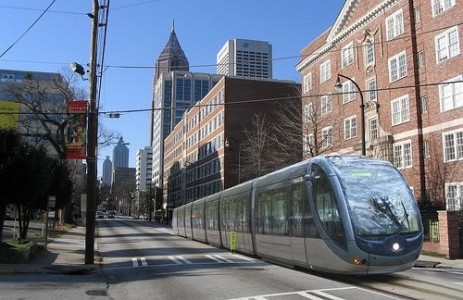The Mobility Choice Coalition — a collection of environmentalists, fiscal conservatives, and national security specialists — ranks the most effective ways to reduce transportation-oil dependence in a new report, Taking the Wheel: Achieving a Competitive Transportation Sector Through Mobility Choice.
 Image: Mobility Choices
Image: Mobility Choices
They must have forgotten to include “tax cuts for the $250,000-plus income bracket.”
The key phrase in the title is “technically achievable oil savings.” The report doesn’t wade into whether the best strategies — a gas tax and congestion pricing — are politically feasible.
More from Tanya Snyder at Streetsblog:
Unlike many similar reports, the Mobility Choice study doesn’t put emissions reductions front and center. They’re more interested in fiscal restraint and national security — well-timed considerations for our current political climate.
I was surprised to see “Liberalize local land-development rules” so far down the list. Nearly everywhere in the U.S., outdated zoning laws mandate things like lot setbacks, building-height limits, parking space minimums, and 14-feet-wide road lanes — whether or not they really make sense for a location. The authors clarify that compact, mixed-use development takes longer to create oil savings — and their report focuses on benefits in the next 10 to 20 years.
That said, our building stock is rebuilt more quickly than you might assume. By 2035, approximately three-quarters of the built environment will be either new or renovated, according to Architecture 2030.



